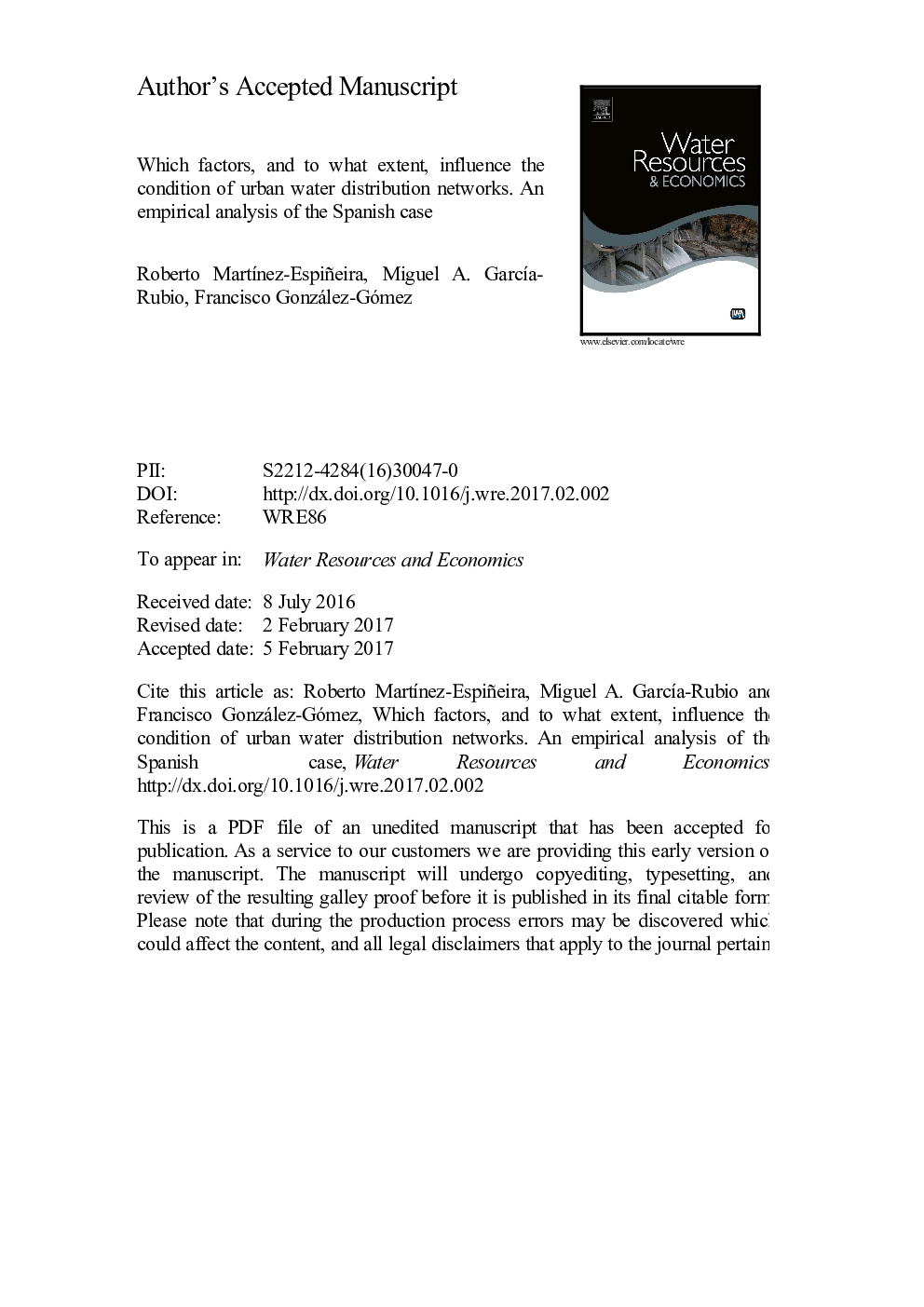| Article ID | Journal | Published Year | Pages | File Type |
|---|---|---|---|---|
| 5104951 | Water Resources and Economics | 2017 | 30 Pages |
Abstract
Many jurisdictions face issues related to the maintenance and improvement of their water distribution networks, particularly in areas under more water stress, which makes leakage more costly. Knowing the explanatory factors of network leakage is necessary to implement mitigation measures. This research analyses the factors behind the repair condition of the water supply networks in Spanish municipalities, as rated by local managers of the water utilities. The data used in this study covers 2257 municipalities with between 1000 to 50,000 inhabitants. We compare the modelling with univariate regression techniques of a fractional dependent variable that summarizes the network quality ratings into a single number and the use of a fractional multinomial logit to model the untransformed proportions of the network rated as in poor, moderate, and good condition. Factors both within and beyond the decision-makers' control appear to explain the condition of the networks. The main policy recommendation is a set of enforced regulations that promote the consistent and effective improvement of the condition of networks in Spanish municipalities, regardless of factors such as the political leanings of the local government or the type of ownership of the water supply utility.
Related Topics
Life Sciences
Agricultural and Biological Sciences
Aquatic Science
Authors
Roberto MartÃnez-Espiñeira, Miguel A. GarcÃa-Rubio, Francisco González-Gómez,
